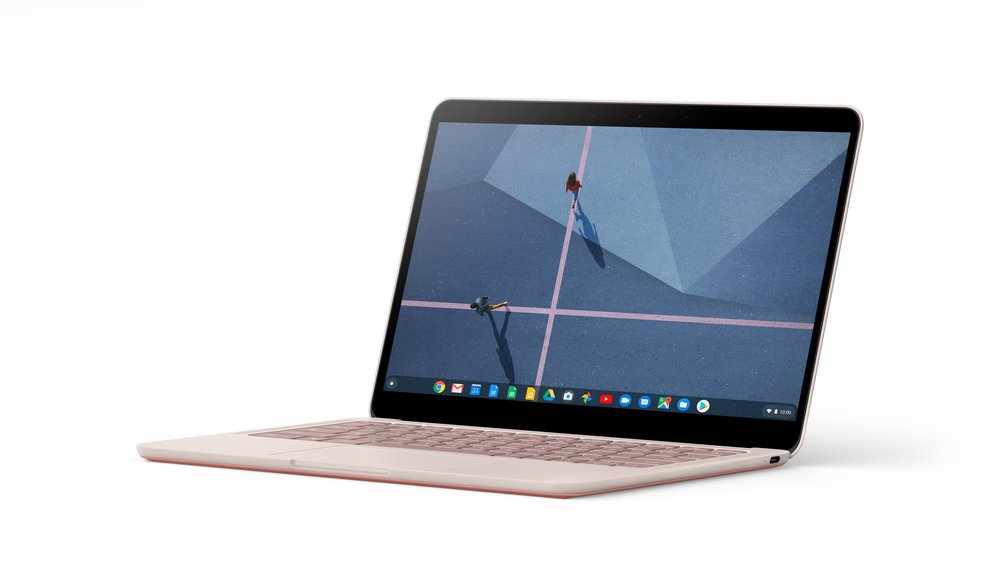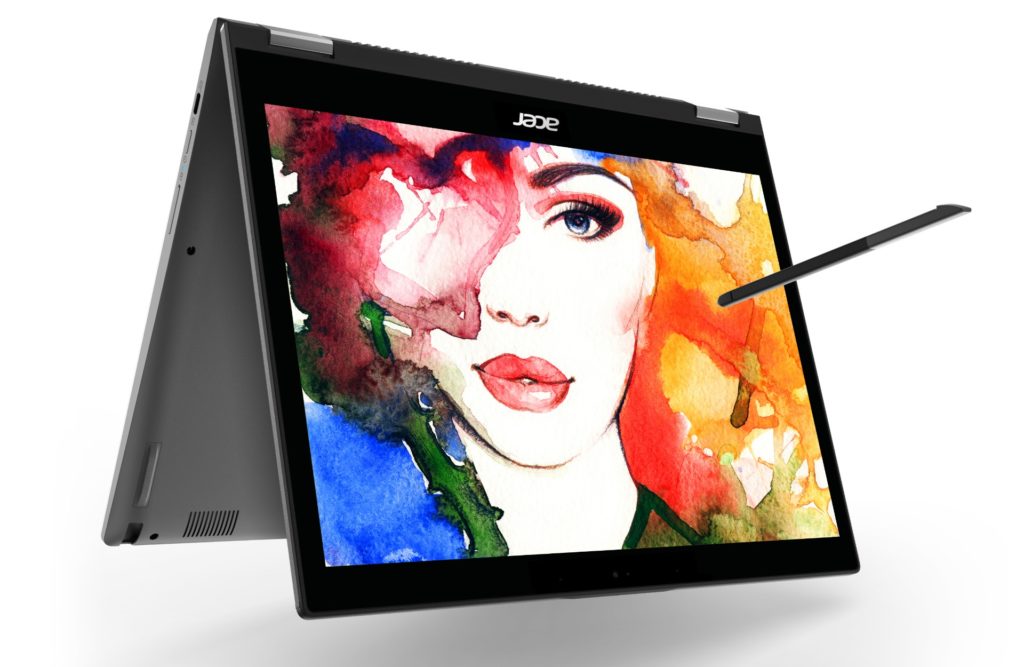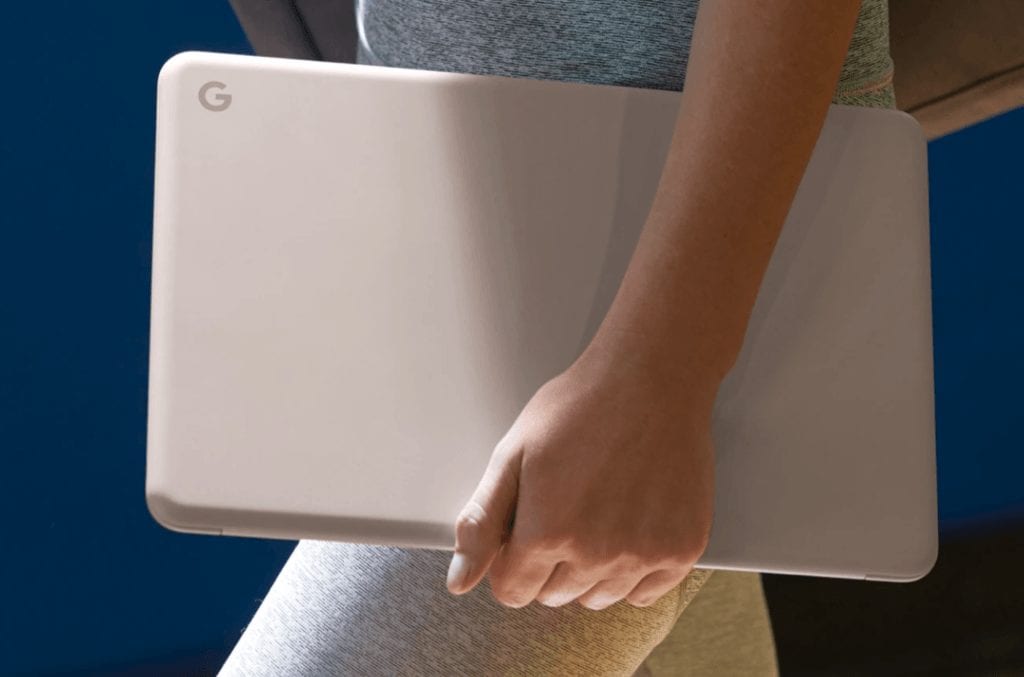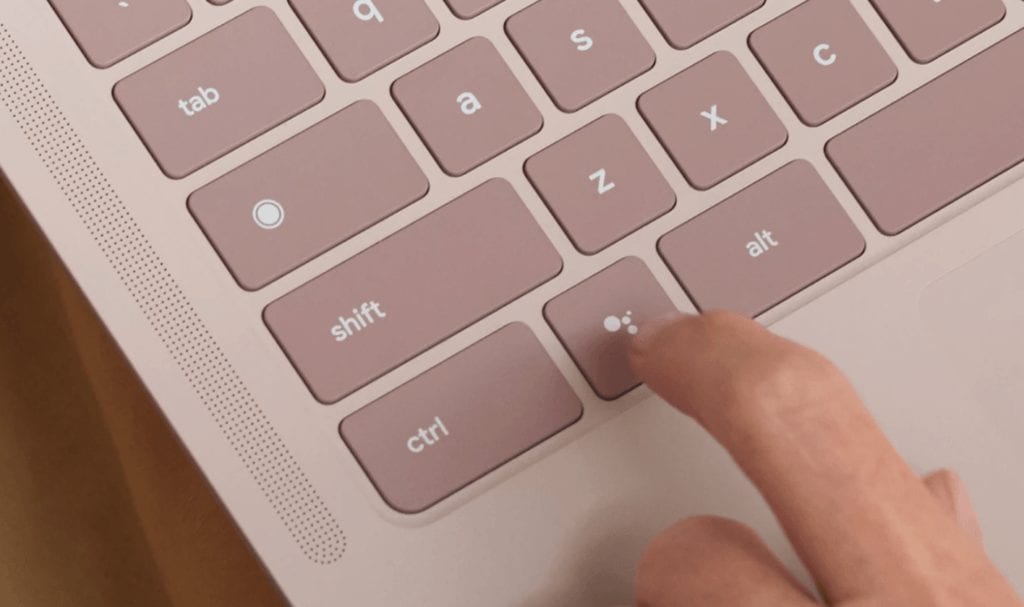After a hectic Tuesday trip to New York City to see the Google’s latest hardware efforts, I’ve finally caught my breath again. It didn’t help that I had to take my wife to the ER between then and now due to her experiencing chest pains. That’s all resolved now – she’s fine – so I can share some additional early thoughts on the Pixelbook Go, what I’m effectively calling a “Pixelbook for the masses.”
Many of those thoughts come by a way of a conversation I had yesterday with Ben Janofsky, Senior Product Manager in Google’s hardware division. We had a candid conversation about the Pixelbook and Ben was kind enough to answer some of my lingering questions about the device, which can be pre-ordered for end of month delivery, starting at $649.

First and foremost, Janofsky told me, was that the 2017 Google Pixelbook far exceeded Google’s sales expectations. Even with a starting price of $999, I can see that. The Pixelbook has a fantasic design, is made with quality materials all around and, at the time, was the most powerful Chromebook one could buy.
Given that though, I asked if the Pixelbook Go was ever considered to be a more potent sucessor. After all, I’ve tracked development on Atlas, the baseboard used for the Pixelbook Go over the last 18 months: One of the first known details was support for a 4K display, which alluded to the strong chance of an even more powerful Pixelbook.
Janofsky says no, the Pixelbook Go was always to offer Pixelbook performance at a more affordable price, so that Google could provide a less expensive model for broader appeal. I’m still raising an eyebrow slightly at that thought though.
When development of Atlas began, Google still owned the high-end Chromebook market. But the Pixelbook did its job by showing that there was demand for high-performing Chromebooks and later in 2018, we saw a slew of what I’d call Pixelbook competitors in that market. Think Acer Chromebook Spin 13, Lenovo Yoga Chromebook 630 and HP Chromebook X360 in some configurations.

In my mind, it’s possible that Google saw its hardware competitors enter the “Pixelbook market” and shifted the Pixelbook Go strategy. Janofsky assured me that’s not the case and that Google doesn’t see its hardware partners as competitors.
Instead, the Pixelbook Go would bring relatively high performance at a more palatable price, along with Google’s design chops and other goodies. That 12 hour battery life, for example, is one of those. More importantly though may be the quick charge capabilities of Pixelbook Go.
Janofsky told me that he uses a Pixelbook Go and recently the device wasn’t plugged in overnight, so he only had a 50 percent battery when heading to work. Thanks to the quick charge feature, he wasn’t concerned: A 20 minute top off adds 2 hours of battery life.

From a design perspective you still get much of the Pixelbook look, feel and build quality: A high resolution touch screen, thin profile, light weight, great (if not improved) keyboard and super trackpad. And Janofsky agreed that there are Pixel Slate design cues as well: The rounded corners of the Pixelbook Go chassis look identical to those on the Pixel Slate. And those hush keys of the Google Pixel Slate Keyboard have made their way into the Pixelbook Go keyboard as well.
You give up a 360-hinge and stylus support with the Go, but those aren’t important features to everyone, Janofsky noted, and these also help keep costs down. So too does using the same eight-generation Intel Y-Series chips as you’d find in last year’s Pixel Slate. They provide a slight performance bump over the original Pixelbook and they’re certainly powerful enough for the target audience of the Pixelbook Go.
I told Janofsky that I don’t think the Go is for me, mainly because my coding activities are better suited with the Acer Chromebook Spin 13 with 16 GB of memory that I recently purchased. I’m sure any developers who were looking for a higher performing Pixelbook 2 are in the same boat. However, this group is a relatively small segment of the Chromebook market. And as I noted earlier, there are plenty of other Chromebook choices for this segment now.
Another key question I had for Janofsky was how long will the Pixelbook Go be supported with Chrome OS updates. I asked because Chromebooks are typically supported for 6.5 years although that clock starts ticking when a Chromebook on a new chipset platform launches. And if that’s the case, the Pixelbook Go has already lost some of that time given that the 8th-gen Intel Core chips have powered Chromebooks since 2018.
Janofsky acknowledged that this limitation is important to Chromebook buyers and told me that the AUE, or automatic update expiration date would be pushed out for the Pixelbook Go, as well as other devices using the 8th-gen Intel processors.
Currently, the Pixel Slate shows an AUE date of June 2024 but it’s possible that another two years could be added to that for both the Slate and the Pixelbook Go, Janofsky said. Expect Google to update the AUE dates in the coming weeks to see how long of an extension these devices will get.

My Pixelbook Go review unit arrives later today, so I’ll approach the device from a mainstream audience perspective. Don’t get too excited looking for early reviews: None will be posted until late next week per Google’s instructions. I’m OK with that because I don’t like to make snap judgements for reviews. I prefer to live full time with a device for a good week before I gather my thoughts.
Is Pixelbook Go the Pixelbook 2 that most, if not all, of us die-hard Chromebook users expected? Nope. That’s evident by the internal hardware and the starting price.
Will some Chromebook shoppers bypass the Pixelbook Go in favor of higher performing devices that can be had at a similar or even lower price? Probably. Competing choices in this category are the Asus Chromebook Flip C425 and the 2-in-1 Dell Inpiron Chromebook 14 to name a few.
Is there a market for Google-designed Chromebooks with solid performance, long battery life, high quality build materials and a nearly silent keyboard though? Google thinks so and hopes that is nameplate, device quality and support will sway some buyers to one of the lightest and thinnest, good looking Chromebooks with a smidge of premium pricing.


11 Comments
I’m wondering how many people skipped the previous big sales on the Slate+keyboards hoping for something awesome from the GO that are now hoping for another Slate+keyboard sale like the last few.
The Slate + Brydge keyboard = 3.1 pounds with a 12.3in display
PB Go = 2.3 pounds with a 13.3in display
Having more screen real estate in a significantly lighter package makes a difference to me when I’m “on the Go”. 🙂
The only disappointment with the Go is the omission of a fingerprint sensor.
” I don’t think the Go is for me, mainly because my coding activities are better suited with … 16 GB of memory”
Google will be releasing the Go with
$999: 16GB RAM, 128GB SSD, FHD, 8th Gen Intel Core i5
$1,399: 16GB RAM, 256GB SSD, UHD, 8th Gen Intel Core i7
I’ll be interested in reading your review to see if these models would be more suited to someone who has similar coding requirements to you.
I have coding requirements, but also travel requirements. I’d very much like it to have an option for cellular capability. Tethering through my phone is cumbersome, and also doesn’t let the laptop be a backup in case my phone is damaged or lost. Running full Linux is also vitally important, but I believe that box is checked. 512GB of SSD would also be highly desirable. Hopefully Google comes out with a new higher-end model.
After using the Pixelbook Go for a few days, I can say that for limited development needs, it’s perfectly fine. After all, I used the Pixel Slate for coding classes full time for nearly two semesters. However, some IDEs are better suited to run with more than 8 GB of RAM, which is one reason I got the 16 GB model of the Acer Chromebook Spin 13. Additionally, the Pixelbook Go uses lower-powered Y-Series processors; the same ones as in the Pixel Slate. And Google recommends the better performing U-Series chips for Android Studio; another reason I added the Acer because it uses a U-Series chip.
Thanks for the update.
I’m guessing then that the 16GB PB Go would do the job in a similar way to the Slate but as you say a better processor makes a difference.
I’m glad Mrs. Kevin C. is OK now .
Barry (dinosaur)
Thanks Barry!
Do we know if Google will update the non-Go Pixelbook as we had expected them to do? The introduction of the Go doesn’t mean they can’t… but do they want to?
The big disappointment I have is the loss of the 3:2 display. I’m dying for the non-Go Pixelbook to have thinner bezels so it can have a larger display such as is found in the original Chromebook Pixel’s. (With smallish 3:2 displays, a little more screen is worth a whole lot.) We saw mock-ups. Will they do it?
I’m interested in the i7 model with the 4k display. Are there other chromebooks that might be cheaper with similar (or better) specs?
Thanks!
If you don’t mind a larger 4K display and more weight / less battery life, the Lenovo Yoga Chromebook C630 with Core i5 has been around $630 on sale directly of late.